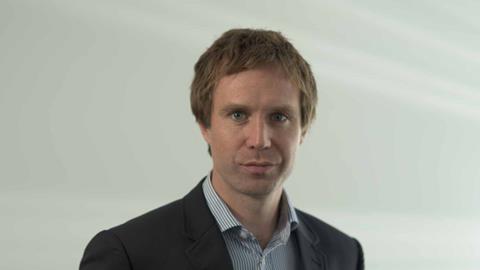Partner and IP solicitor, Potter Clarkson, Nottingham
When I left university, I wanted to do something that would be both commercial and involve talking to people – a career in law seemed like a good option. I moved back to Nottingham (where I grew up) to undertake the GDL and then the LPC at Nottingham Law School. I trained at Browne Jacobson, where I stayed for 10 years, before moving to Nelsons Solicitors in 2014 as a partner, and then to Potter Clarkson in 2016.
I am an IP specialist and I do a mix of litigation and commercial work, which involves tight deadlines, technical cases, important negotiations, and high-pressure trials. While these are all challenges, they also give me a buzz.
I love trials. I took a matter (Stretchline v H&M) to the High Court last October and won which was great, though it goes to appeal next year.
Contract negotiations are always fun. That said, they can get a little surreal. One year, I remember finalising a contract negotiation on Christmas Eve. There were dozens of lorries waiting at Dover to load products on to a ship for delivery to Italy. We could not get the negotiation over the line until after 9pm. I was conscious of all the people waiting in their lorries, unable to go home and probably cursing the lawyers who could not get their act together. That was pretty stressful.
I have been a local [Labour] councillor in Nottingham for the past five years, and am responsible for economic growth, business and transport issues for Nottingham. There is no doubt that legal training has helped me take a forensic, evidenced-based approach to developing policy and making decisions.
I think the IP profession is heading in the right direction. I suppose clients are more demanding than when I first started in practice, particularly regarding fees. But that is fair enough. The days of switching the clock on at the start of the day and billing clients whatever you like are long gone – and that has to be good for business and the reputation of the profession. More recently, the consequences of Brexit are being felt in the profession, for example in the stalling of the Unified Patent Court. However, I hope as a profession we will find a way to drive some of those developments forward.
The coming together of the IP profession has started to gather pace over the last few years. My move to Potter Clarkson is a perfect example. We are now a full-service IP firm, with patent and trade mark attorneys working alongside IP solicitors to deliver a complete solution for clients’ IP issues. I think that is better for clients and better for IP legal providers.
It has always been difficult to explain to clients (particularly overseas clients) why they need to instruct two or three separate firms – for example in relation to a patent litigation matter.
































No comments yet